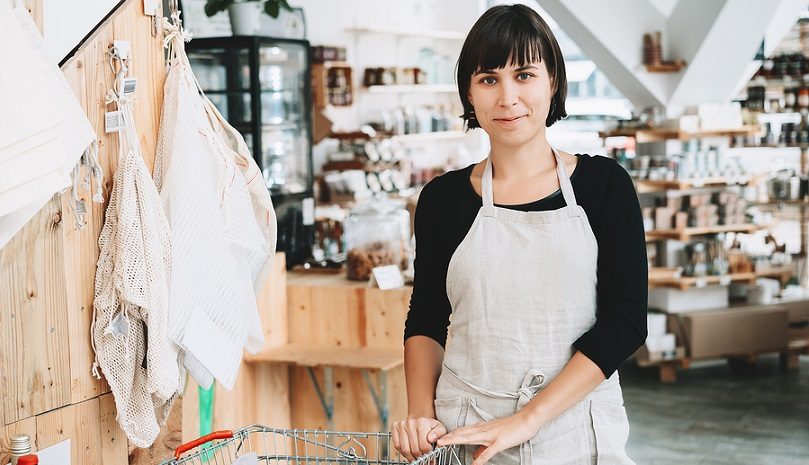When the tall poppy syndrome meets sustainability

I was in Paris recently meeting other entrepreneurs and investors in the cleantech area and the conversations naturally turned to positive actions in the sustainability space.
In Europe, there is a robust legislative framework to reduce climate change impacts and supportive government policies, with engaged investors, all trying collectively to achieve climate change solutions. The message was loud and clear to entrepreneurs: be brave, do more and do it faster.
Travelling home, I reflected that Australia does not have this legislative framework in place currently. And I believe this is driving behaviour around how retailers execute their sustainability goals and how they communicate with their customers.
Defining success in the sustainability area is complex, and everyone is engaged with numerous activities to reduce their environmental impact.
Does this mean that it is easier for retailers to be more focussed on the internal activities regarding sustainability, which they can control and message, rather than the external activities, which are complex and may have greater consumer impact, but are more disruptive to existing operating models?
Are we suffering from the tall poppy syndrome, where we are concerned about a backlash if we are not 100 per cent right? The answers in sustainability are never 100 per cent right, as we are learning all the time. Surely, we should engage consumers on our sustainability journeys and involve them in our conversations!
We engage with many retailers globally as we continue to understand textile recycling and we have many examples of organisations doing things that are good for them, e.g. making a very small part of the range out of one recycled yarn, as opposed to the bigger solutions, that will be good for the planet, e.g. how do we ensure no textiles go to landfill?
In Australia, a contempory example is the question of ‘do we do store take backs’ of post-consumer textiles.
This is hard for retailers because it disrupts the operation in the store, puts demands on busy sales staff, involves reverse logistics from stores to a central warehouse, potentially incurs costs, has sortation issues etc. It remains on the ever growing too hard list.
But thinking more radically, if you compare visitation frequency for your customers to your stores, in shopping centres, where they may also do a daily food shop, this will be higher than their planned visits to other textile drop-off points. How do you capitalise on this to drive more frequent visits? Does the idea of a ‘bounce back’ scheme resonate for your brand? Could you drive increased spend and loyalty from the customer for a behaviour they were going to engage in anyway?
The bigger impact of this behaviour is that you are publicly seen to be doing
something different, something brave, and your sustainability credentials are improved in far greater numbers across the customer base.
Imagine the next steps. This could have flow on effects into peak bodies, e.g. the NRA, to effectively lobby state and federal government, power to support investment in mechanised sortation solutions. Too big a dream? I don’t think so, we just need to collectively decide to do it and work collaboratively on solutions.
Finally, with regard to the fear of failure and using this for good effect, I refer to you to company I respect and hold up as an exemplar in this space, Patagonia.
Just step back a moment and completely personalise this. The people you respect and trust most in life, are those that are achievers, but are both honest and humble about their successes and failures.
Patagonia are leaders at this. They strive every day to do their best for the planet by setting lofty goals and driving hard to get there. Like our own lives, the journey to these goals is not linear and setbacks occur, but instead of waiting until they are 100 per cent right before they tell anyone, they engage in dialogue about their journey.
They publish The Footprint Chronicles, a regular blog detailing their intents, their journey and what they are still working on. This genuine and understated honesty builds a natural affection and trust with the brand. It personalises their journey to what we are all trying to do every day, simply our best.
So, let’s not wait for everything to be right before we start. Let’s set out some really bold publicly stated goals, be brave and collaboratively engage to show the customers we want this change as much as they do.
Adrian Jones is the co-founder of BlockTexx.
This op-ed first appeared on our sister site Inside Retail Australia.
Comment Manually
You must be logged in to post a comment.

No comments